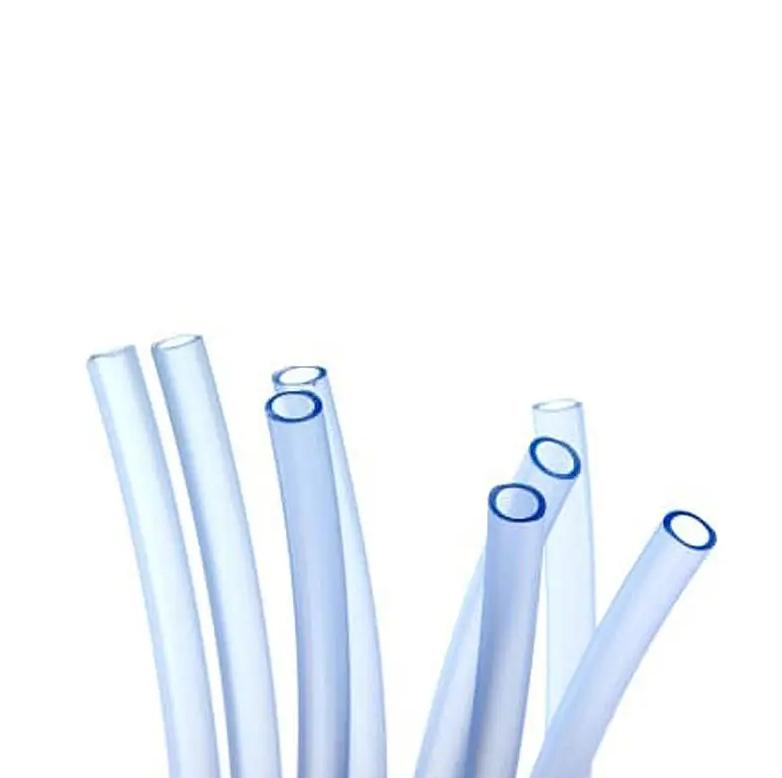What are the standards for medical Silicone tube certifications?
Posted 2025-01-10 08:51:10
0
17

medical tube manufacturer must meet various standards and certifications to ensure its safety, efficacy, and compatibility for medical applications.
Here are some of the key standards and certifications commonly associated with medical silicone tubing:
1. ISO 13485
- Quality Management System: This standard specifies requirements for a quality management system where an organization needs to demonstrate its ability to provide medical devices and related services.
2. ISO 10993
- Biocompatibility Testing: This series of standards assesses the biocompatibility of materials used in medical devices, including tests for cytotoxicity, sensitization, irritation, and systemic toxicity.
3. FDA Approval
- Food and Drug Administration (FDA): Medical silicone tubing intended for use in the United States must comply with relevant FDA regulations. This includes registration and listing, as well as premarket notifications (510(k)) where necessary.
4. USP Class VI
- United States Pharmacopeia: Silicone materials that meet USP Class VI standards are considered safe for use in medical applications. This classification signifies that the material has passed rigorous testing for potential toxicity.
5. EN 13795
- European Standard for Surgical Drapes: This standard applies to materials used in medical applications, ensuring they meet specific performance requirements.
6. RoHS Compliance
- Restriction of Hazardous Substances: This directive limits the use of certain hazardous materials in electrical and electronic equipment, which may also be relevant for medical devices.
7. REACH Compliance
- Registration, Evaluation, Authorisation, and Restriction of Chemicals: This regulation addresses the production and use of chemical substances and their potential impacts on human health and the environment.
8. ASTM Standards
- Various ASTM (American Society for Testing and Materials) standards may apply, such as:
- ASTM D2000: Standard Classification System for Rubber Products.
- ASTM F1929: Standard Test Method for Detecting Seal Leaks in Porous Medical Packaging by Dye Penetration.
Summary
Medical silicone tubing must comply with rigorous standards and certifications to ensure safety and efficacy in medical applications. Key standards include ISO 13485, ISO 10993, FDA regulations, USP Class VI, and others that address biocompatibility, quality management, and material safety. Manufacturers often conduct extensive testing and documentation to demonstrate compliance with these standards.
![]()
Site içinde arama yapın
Kategoriler
- Art
- Causes
- Crafts
- Dance
- Drinks
- Film
- Fitness
- Food
- Oyunlar
- Gardening
- Health
- Home
- Literature
- Music
- Networking
- Other
- Party
- Religion
- Shopping
- Sports
- Theater
- Wellness
- IT, Cloud, Software and Technology
Read More
Artificial Firelog Market Technology and Opportunities Forecast
"Artificial Firelog Market Size" research report looks at the main drivers impacting global...
Book Cheap Flight to London
Are you looking for Book Cheap flight to London? Aircomodo Cheap Flights provides a wide...
Transform Your Dining Experience: The Elegance of Premium Table Linen
A Comprehensive historical analysis of Global Table Linen Market has thoroughly...
United States Diamond Slurries Market Research Report 2024-2030
The United States Diamond Slurries market size was valued at US$ 87.3 million in 2024 and is...
Are Online Slots Safe? Here’s How to Protect Yourself
Online spaces have flooded in prevalence, charming players all over the planet with their drawing...


